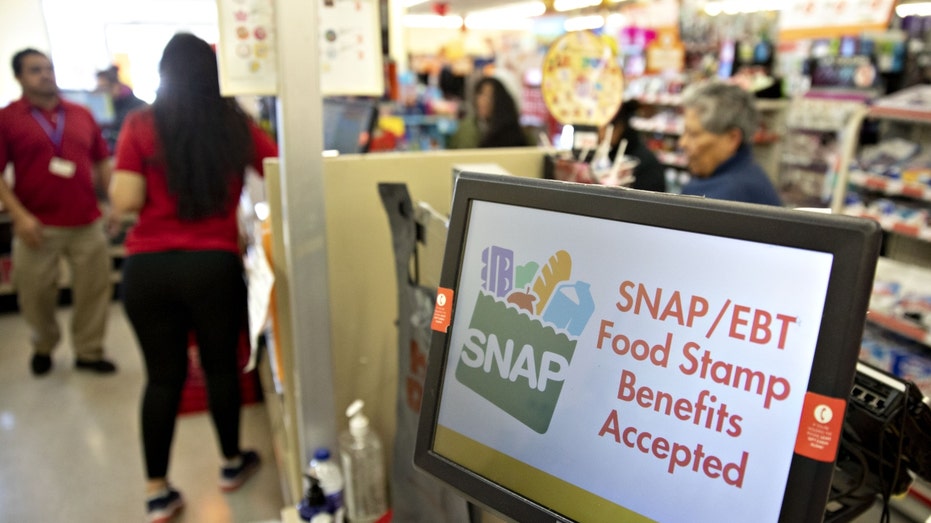House Republicans included billions in cuts to food stamps, shifted food assistance program costs to states and included more stringent work requirements for the nutrition program in their megabill loaded with President Donald Trump’s policy priorities.
The changes to the supplemental nutrition assistance program, or SNAP, were a small part of a much larger, multitrillion-dollar megabill rammed through the House by House Speaker Mike Johnson, R-La., Thursday morning that advances president’s agenda on taxes, immigration, energy, defense and the national debt.
Tweaks to SNAP, commonly known as food stamps, would yield roughly $300 billion in savings over the next decade. SNAP is the largest food assistance program in the country with over 40 million Americans receiving benefits.
NATIONAL DEBT TRACKER: AMERICAN TAXPAYERS (YOU) ARE NOW ON THE HOOK FOR $36,214,475,432,210.84 AS OF 5/21/25
The proposed policy changes go a long way as part of the House GOP’s goal of hitting at least $1.5 trillion in spending cuts in Republicans’ bid to put a dent in the federal government’s debt of over $36 trillion.
The U.S. government has spent $1.05 trillion more than it has collected in fiscal 2025, according to the Treasury Department.
House Agriculture Committee Chair Glenn Thompson, R-Pa., lauded his panel’s contribution to the colossal bill during a victory lap press conference after the bill’s passage as policy changes that would better serve “the most vulnerable” in the U.S.
“We’ve achieved something we haven’t been able to do in a very long time, and that is restoring the intent of Congress, not by cutting or taking people off the roll for the nutrition programs, but restoring program integrity,” Thompson said.
HOUSE REPUBLICANS UNVEIL NEW FOOD STAMP WORK REQUIREMENTS FOR TRUMP’S ‘BIG, BEAUTIFUL BILL’
However, the top Democrat on the panel, Rep. Angie Craig, D-Minn., blasted the changes to SNAP, accusing Republicans in a statement of seeking to make “America hungrier, poorer and sicker.”
“Parents struggling to afford groceries for their families and seniors living on fixed incomes will have their food taken away if this bill becomes law,” she said.

Some of the reforms under consideration by the Republican-led Congress and White House include altering the age range of work requirements for SNAP benefits for able-bodied adults between the ages of 18 and 64 years old, booting illegal migrants from the benefit rolls and shifting some of the cost burden of the program from the federal government to the states. The work requirements also apply to parents with children over the age of 7.
However, there are a string of exceptions, including pregnant women, people who are homeless, veterans, people who are 24 years old or younger who are aged out of the foster care system and SNAP recipients with children 7 years or older who fall under any of the aforementioned exceptions. But those exceptions will sunset in 2030.
Beginning in fiscal 2028, states will start taking on a baseline of 5% of SNAP costs. The federal government currently shoulders 100% of the cost of the program, and states’ contributions would increase on a sliding scale based on the error rate in benefit payments per state.

For example, if a state has an error rate between 6% and 8%, it would be responsible for 15% of SNAP costs.
The program revisions would also lower the federal match rate, or how much the federal government reimburses states for administering the program, from 50% to 25%.
Read the full article here







Leave a Reply